It’s currently estimated that only around one percent of the world’s population are vegan. World Vegan Day brings awareness to the benefits of eating more plants that are locally grown both nutritionally and in terms of the environmental benefits.
Clinical Nutritionist, Suzie Sawyer, shares five of her favourite foods to include in a vegan diet to support your health and wellbeing.
Quinoa
Often referred to as an ancient grain, it’s actually a seed that can be found in white, red, black, or mixed varieties. Quinoa can be cooked and used in a similar way to rice. But the best news is that it’s high in protein and contains all the essential amino acids. It’s not necessarily got the highest of all vegan proteins, but many are lacking in certain amino acids. So, quinoa hits the spot when it comes to covering all bases.
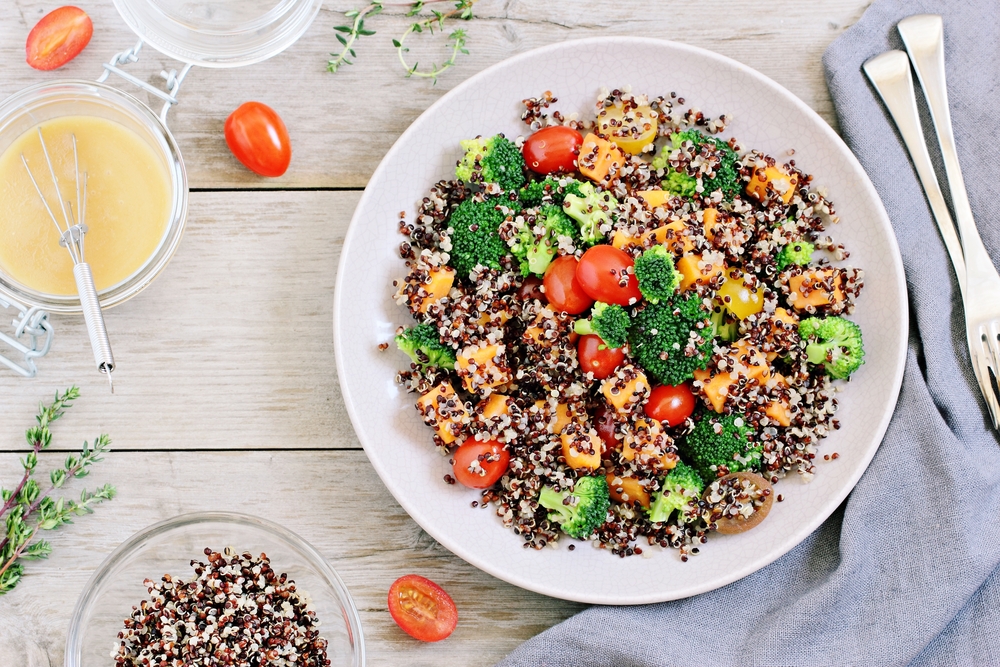
Importantly quinoa is non-allergenic, unlike rice or couscous, so can be eaten by everyone. Plus, it’s rich in key minerals, especially magnesium, needed for the nervous system, hormones and heart, and zinc, essential for the immune system.
Lentils
Lentils are pulses, just like chickpeas, and are high in protein, with around eight to nine grams of protein per 100 grams, so are perfect for vegans. They are a staple food of south Asian cuisine and come in a range of colours with the green variety delivering plenty of minerals. Green lentils are rich in selenium, a powerful antioxidant that is often deficient in the typical western diet, together with iron, another nutrient often lacking in the vegan diet.
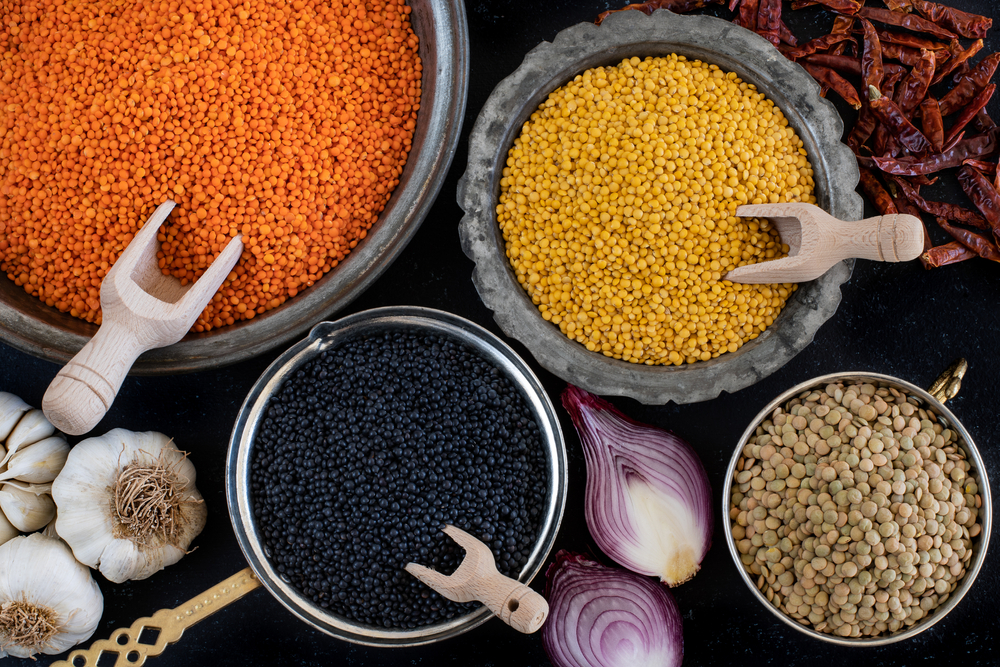
If you’re struggling with peri menopause and menopause symptoms, then these little gems should feature highly on the menu. Why? Because they’re rich in isoflavones and lignans which have a great balancing effect on oestrogen levels, which can help to reduce unpleasant symptoms.
Tofu
Tofu, also called bean curd, is derived from soya and is another staple food of eastern cultures. Again, tofu is high in protein (eight grams per 100g) but also delivers many more nutritional benefits.
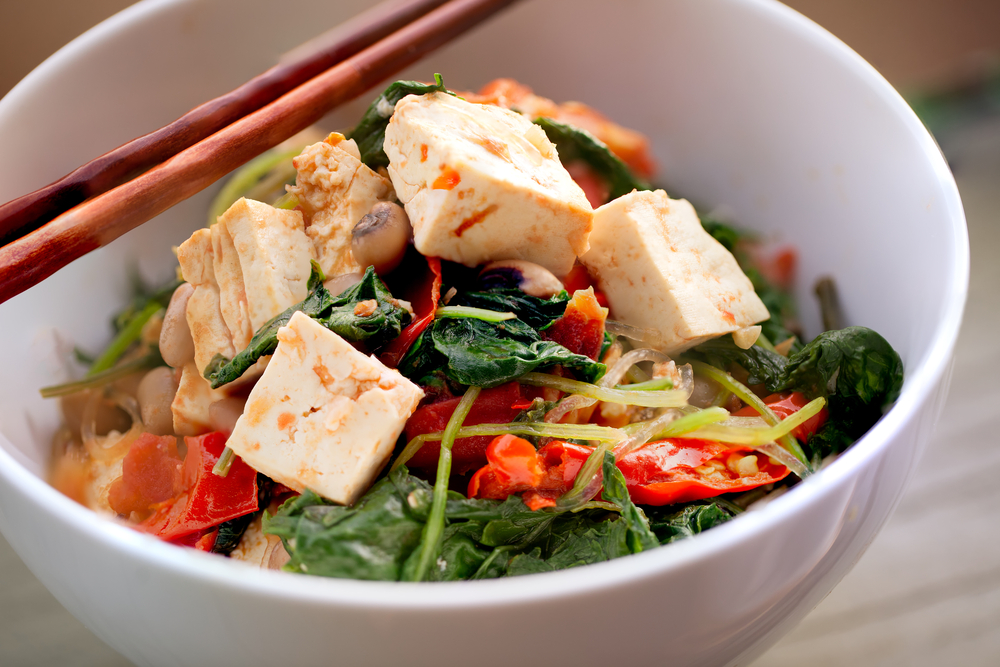
Tofu naturally contains calcium which is great for the heart, bones and nervous system and often additional calcium is added too. Plus, it’s low in fat and helps manage cholesterol levels (just like all soya foods). Importantly, women struggling with menopause often turn to tofu because it’s rich in phytoestrogens, which can help manage menopause symptoms. Not sure how to cook it? Tofu doesn’t have much natural flavour so is generally best with stronger flavours, particularly in a stir fry with garlic, ginger, and any other herbs or spices of your choice.
Broccoli
Broccoli is a real nutritional hard hitter when talking about vegetables. With any diet, it’s important to try and include as many nutrient-rich foods as possible to try and obtain those all important 45 nutrients the body needs every day; eating broccoli can certainly help achieve this.

One of the most important health claims of broccoli is that it can help protect DNA from damage and this provides a protective effect throughout the body. It’s also rich in vitamin C and beta carotene, both powerful antioxidants too. Broccoli is high in fibre, can help with hormone balancing in both men and women and also provides around three grams of protein per 100 grams – pretty impressive all round.
Avocado
Avocado has the highest amount of protein of any fruit, delivering 1 gram per half an avocado. Importantly, avocados are rich in monounsaturated fats which are heart healthy. Whilst a vegan diet is generally high in nuts which contain healthy fats, it may not contain the essential omega-3 fats found primarily in oily fish. Flaxseed is a great vegan source of omega 3s so include these in your diet whenever you can by adding to breakfast cereals, as a topping on yoghurts, in salads and smoothies.
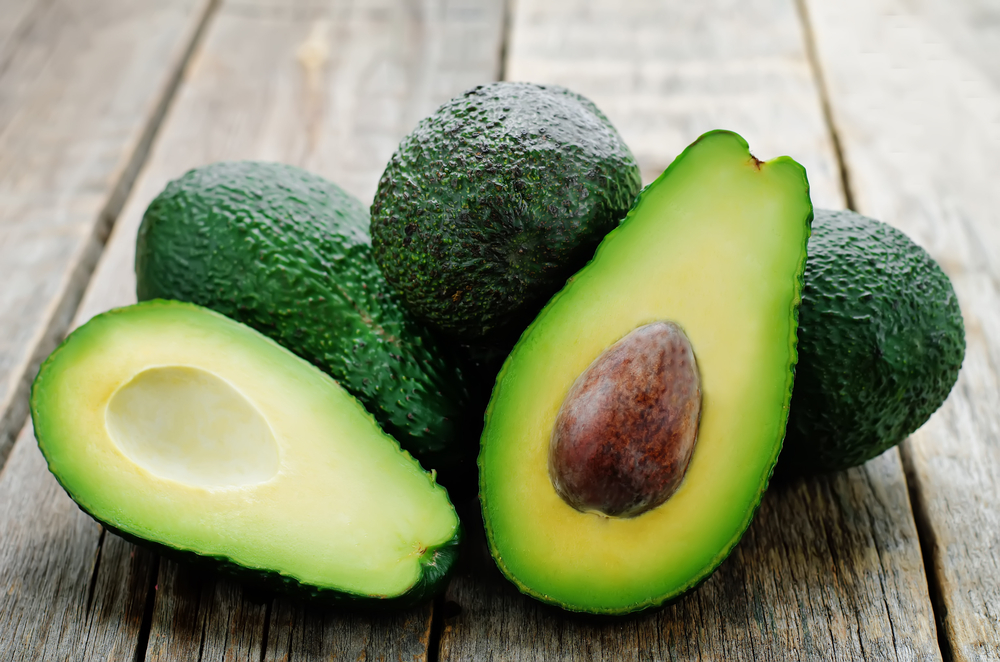
The body needs sufficient fat to absorb our fat-soluble nutrients, vitamin A, vitamin D, vitamin E and vitamin K, and for so many other body functions. Avocado can certainly bridge the gap where fat intake is concerned.
Avocados are also rich in vitamin B6, which is great for energy and the nervous system, as well as potassium, essential for the heart. It’s another great all-round food.
If you follow a vegan diet, the more nutrient-dense foods you can eat, the better your overall health will be, both now and in the future.

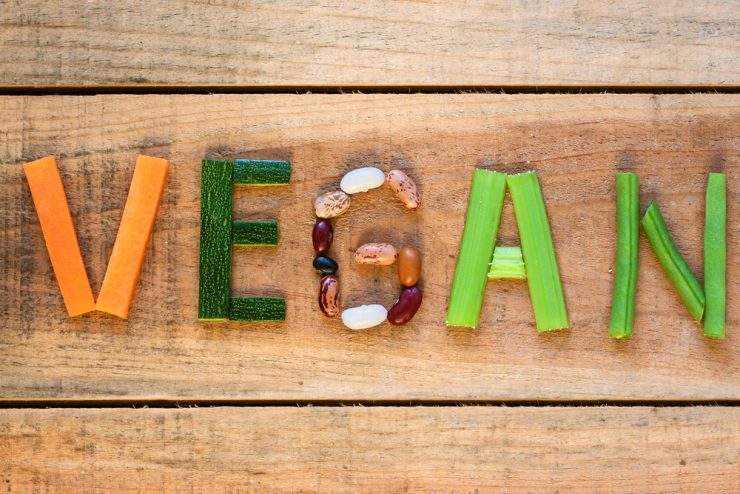













Add comment